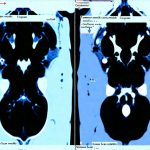Gastrointestinal (GI) issues are incredibly common, impacting millions of people worldwide. From occasional bloating and heartburn to more persistent problems like abdominal pain, diarrhea, or constipation, the digestive system is a frequent source of discomfort and concern. When you visit your doctor complaining about these symptoms, it’s rarely a straightforward diagnosis. The human GI tract is a complex ecosystem, and pinpointing the exact cause of distress often requires a multifaceted approach to testing. This isn’t necessarily alarming; in fact, it demonstrates your physician’s commitment to accurate assessment and appropriate treatment. It reflects an understanding that digestive health is intricate, and symptoms can overlap between various conditions.
Many patients understandably feel frustrated or anxious when their doctor suggests multiple GI tests. The thought of endoscopies, colonoscopies, blood work, and stool samples can be daunting. However, it’s crucial to recognize that these tests aren’t being ordered arbitrarily. They are tools – essential pieces in the puzzle needed to understand what’s happening within your digestive system, differentiate between possible causes, and ultimately develop a targeted plan for relief. A single test often doesn’t provide enough information to form a definitive diagnosis or rule out serious conditions. The goal isn’t simply to identify a problem, but rather to identify the correct problem.
Understanding the Complexity of GI Symptoms
The sheer variety of potential causes for GI symptoms is one major reason why multiple tests are often necessary. What seems like simple bloating could stem from lactose intolerance, irritable bowel syndrome (IBS), celiac disease, small intestinal bacterial overgrowth (SIBO), or even something more serious like inflammatory bowel disease (IBD). Symptoms can be non-specific and overlap considerably, making it difficult to determine the root cause based on symptoms alone. For example:
– Abdominal pain can indicate anything from gas and constipation to appendicitis or a gallbladder issue.
– Diarrhea might result from a viral infection, food poisoning, medication side effects, or chronic conditions like Crohn’s disease.
– Constipation could be due to dehydration, lack of fiber, stress, or underlying medical problems.
Furthermore, the digestive system is interconnected. Problems in one area can often manifest as symptoms in another. For instance, issues with the gallbladder can cause abdominal pain that radiates to the back and might mimic pancreatic problems. Similarly, imbalances in gut bacteria (the gut microbiome) can contribute to a wide range of symptoms beyond just digestion, including fatigue, skin conditions, and even mood disorders. Because of these interconnections, doctors often need to gather data from multiple sources – tests examining different parts of the digestive tract and assessing various functions – to get a complete picture. A comprehensive approach is vital for avoiding misdiagnosis and ensuring appropriate care. If you are concerned about your diet impacting your gut health, consider reading why sugar may be a contributing factor.
The diagnostic process isn’t just about ruling out diseases; it’s also about identifying specific factors that are contributing to your symptoms. This might involve looking at enzyme deficiencies, nutrient absorption issues, or inflammatory markers. In many cases, a combination of tests is needed to confirm a diagnosis and guide treatment decisions – whether those treatments include dietary changes, medication, lifestyle adjustments, or further investigations. Understanding gi test results can also empower patients to participate in their care.
Why Different Types of Tests Are Used
The types of GI tests recommended will depend on your specific symptoms, medical history, and the doctor’s initial assessment. These tests fall into several broad categories: endoscopic, imaging, stool-based, and blood-based. Each provides different information about the digestive tract. Endoscopic procedures like colonoscopies and endoscopies allow direct visualization of the esophagus, stomach, small intestine, or colon, enabling doctors to identify inflammation, ulcers, polyps, or other abnormalities. Imaging tests such as CT scans and MRIs provide detailed pictures of the abdominal organs, helping to detect structural problems or tumors. Stool-based tests can reveal evidence of infection, blood in the stool (even microscopic amounts), parasites, or abnormal levels of certain substances indicating malabsorption or inflammation. Blood tests can assess liver function, pancreatic enzymes, inflammatory markers, and nutrient deficiencies.
A common scenario might involve starting with less invasive tests like blood work and stool analysis to screen for common issues. If these results are inconclusive, the doctor may then recommend an endoscopic procedure or imaging scan to investigate further. It’s important to remember that tests are often used in sequence, building upon each other to refine the diagnosis. For example, a positive stool test for occult blood might prompt a colonoscopy to rule out colorectal cancer. Or, if initial tests suggest IBD, further testing may be needed to differentiate between Crohn’s disease and ulcerative colitis, as these conditions require different treatment approaches. If you’re experiencing digestive discomfort, it’s important to understand repeat testing is often a necessary part of diagnosis.
The Role of Biopsies in GI Testing
Biopsies – small tissue samples taken during endoscopic procedures – are often a crucial part of the diagnostic process. While visualization during an endoscopy or colonoscopy can reveal obvious abnormalities like polyps or ulcers, it doesn’t always tell the whole story. A biopsy allows for microscopic examination of the tissue, providing more detailed information about its structure and identifying subtle changes that might indicate disease. For example:
– In cases of suspected IBD, biopsies can help determine the type and severity of inflammation.
– Biopsies taken during a colonoscopy can detect precancerous polyps, enabling early removal and preventing colorectal cancer.
– If celiac disease is suspected, biopsies of the small intestine can confirm the characteristic damage to the villi caused by gluten intolerance.
Biopsies aren’t always necessary, but they are invaluable when there’s uncertainty or a need for more definitive information. They provide histological confirmation of a diagnosis and help guide treatment decisions. The process itself is generally well-tolerated, with minimal discomfort. Patients are typically given sedation to ensure comfort during the procedure. Sometimes, changes in gut function can be caused by something as simple as gut motility.
Navigating Multiple Test Results & Follow Up
Receiving multiple test results can be overwhelming, but it’s crucial to understand that this doesn’t necessarily mean something is seriously wrong. It simply means your doctor is being thorough and methodical in their investigation. When you discuss your results with your physician, don’t hesitate to ask questions. Understand what each test measured, what the results indicate, and how they fit together. Ask for clarification if anything is unclear.
The next steps after testing will depend on the findings. If a diagnosis is made, your doctor will explain your treatment options and create a personalized plan. If the results are inconclusive, further testing may be needed, or your doctor might recommend monitoring your symptoms over time to see if they evolve. Remember that diagnostic journeys can sometimes take time, and it’s important to remain patient and communicative with your healthcare team. Don’t self-diagnose based on internet searches; rely on the expertise of your physician for accurate information and appropriate care. A proactive approach, combined with open communication, will help you navigate the process effectively and achieve optimal digestive health. If a new dietary change has affected your digestion, be aware that probiotics can sometimes cause temporary discomfort as well. Additionally, remember to stay hydrated, especially if you feel more bloated during warmer months. Finally, consider if liver scans are appropriate in certain cases.


















